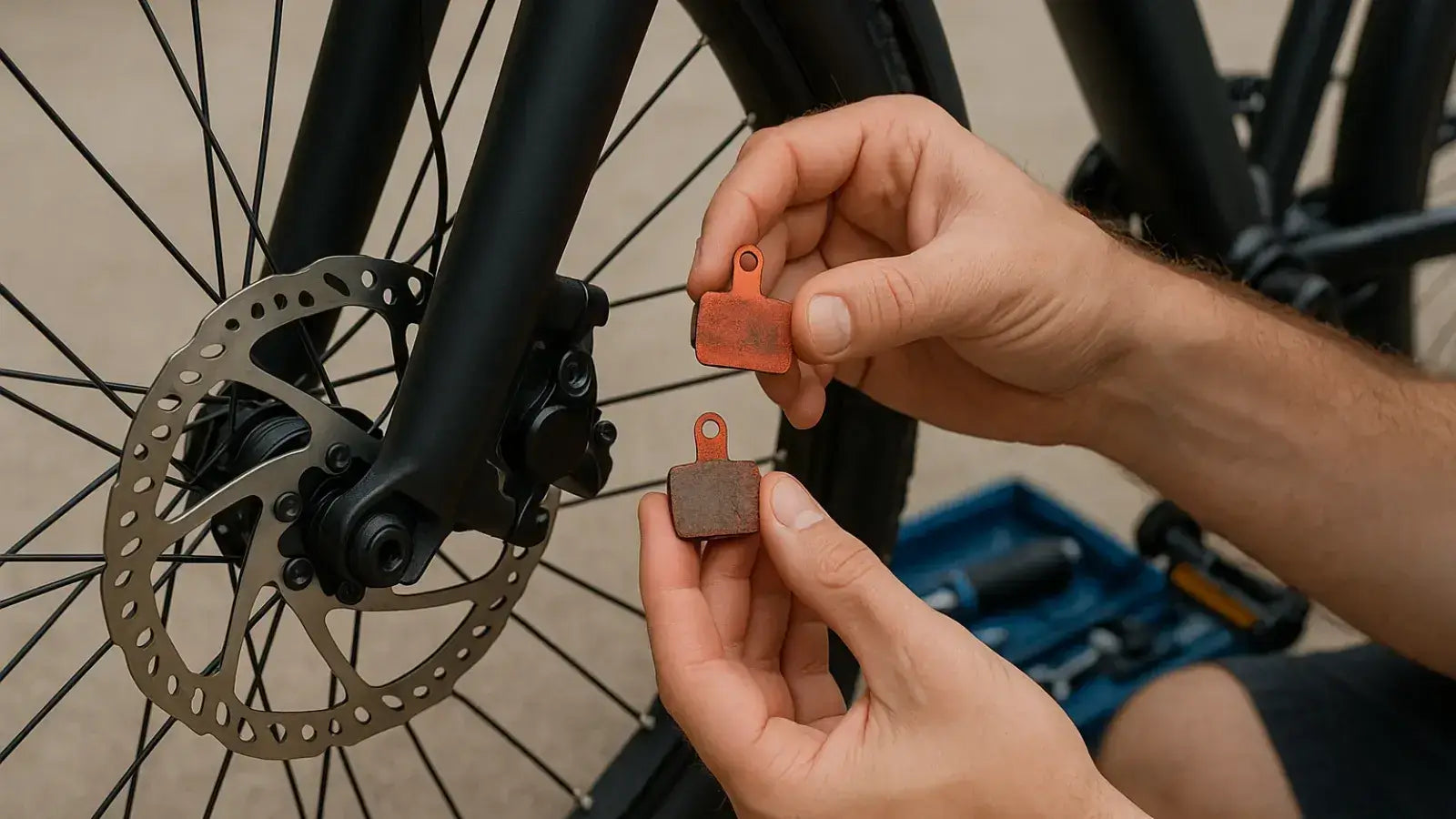
Mechanical vs Hydraulic Disc Brakes: The Basics Guide
When you're picking a new bike or thinking about an upgrade, you'll face an important choice: mechanical vs hydraulic disc brakes. At first glance, the decision between mechanical vs hydraulic disc brakes might seem complicated — but the core difference is actually quite simple.
It all comes down to how the force from your brake lever gets to the part that stops your wheel. One type uses a steel cable. The other uses a sealed system with special fluid inside.
This one difference affects everything about how your brakes work. It changes stopping power, control, how much work they need, and what they cost. This guide will explain both systems so you can pick the best one for your bike and how you ride. Riders often search for answers to questions like “mechanical vs hydraulic disc brakes — which one is better?” or “what’s the difference between the two?” This guide breaks down every aspect to help you confidently compare hydraulic vs mechanical disc brakes, including how they perform in real-world situations like mountain trails, city streets, and long-distance touring.
How Mechanical vs Hydraulic Disc Brakes Work
To understand which is better, we need to see how they work inside. Both systems squeeze pads against a spinning disc to stop you. But they do this in very different ways.
Key Components Breakdown
Mechanical Disc Brakes
- 🧲 Brake Lever – Pulls the cable
- 🪝 Steel Cable – Transfers the mechanical force
- ⚙️ Caliper Arm – Pushes pads toward the disc
- 🛑 Brake Pads – Friction surface to stop the wheel
Hydraulic Disc Brakes
- 🧲 Brake Lever with Master Cylinder – Pressurizes fluid
- 💧 Sealed Hose – Transfers hydraulic pressure
- ⚙️ Caliper Pistons – Push pads symmetrically
- 🛑 Brake Pads – Same function but with better pressure response
Mechanical Brakes: Cable Power
Mechanical disc brakes work like the old rim brakes but better. The idea is simple and strong. Think of pulling a rope to ring a bell - your pull goes straight down the rope.
The steps are easy to follow:
- Lever Pulled: You squeeze the brake lever on your handlebar.
- Cable Tensioned: This creates tension in a steel cable that runs from the lever to the brake part.
- Caliper Actuated: The cable pulls on a small arm built into the brake.
- Pads Engage: This pushes the brake pads against the spinning disc to slow you down.
Hydraulic Brakes: Fluid Force
Hydraulic disc brakes work more like car brakes or a hydraulic jack. They use a law of physics that says pressure in a closed fluid system spreads equally everywhere. This lets you get much more force at the wheel from less effort at the lever.
According to the principle of a hydraulic braking system, a small force at your hand creates huge pressure at the brake. This efficiency is due to the fluid being non-compressible and traveling through a hose that barely expands. As a result, nearly all the force you apply at the lever gets directly transferred to the caliper without signal loss — unlike cables, there’s no friction or lag to worry about. The whole system is sealed tight to keep out dirt and water.
The main parts are:
- Master Cylinder: This sits inside your brake lever and has a piston that pushes fluid when you pull.
- Sealed Hose: A strong hose that won't expand, connecting your lever to the brake and holding the fluid.
- Hydraulic Fluid: Special oil made to resist being squeezed and to handle heat.
- Caliper Pistons: Parts inside the brake that get pushed out by fluid pressure to press the pads against the disc.
Mechanical vs Hydraulic Disc Brakes Compared Side by Side
The "better" brake depends on what you care about most. But we can compare them on several important points. This table shows the main differences quickly.
| Feature | Mechanical Disc Brakes | Hydraulic Disc Brakes |
|---|---|---|
| Stopping Power | Requires more hand strength | More power with less effort |
| Modulation Control | Basic; feels more on/off | Smooth, precise, feathered control |
| Maintenance | Easy, tool-free tension adjustments | Requires bleeding, special tools |
| Field Repairability | Cable can be replaced on the go | Hose failure ends ride; shop repair needed |
| Weather Resistance | Cables affected by dirt and water | Sealed system resists mud, snow, and rust |
| Cost | Budget-friendly | Higher upfront and service cost |
Modulation in Hydraulic vs Mechanical Disc Brakes
Stopping power is easy to measure, but "modulation" is harder to explain and defines how your brakes feel. It's the biggest performance advantage of hydraulic systems. Modulation means you can control exactly how much braking force you use, from light slowing to full stops.
On the Trail
Picture yourself mountain biking down a steep, loose trail. With hydraulic brakes, you can lightly pull the lever to "feather" them. This gives just enough stopping power to slow down while keeping traction without locking the wheel. This is especially helpful in loose terrain like sand, gravel, or muddy trails. In these conditions, hydraulic vs mechanical disc brakes show a clear difference — hydraulic systems offer better feathering, which helps maintain grip and avoid wheel washouts.
You can feel exactly when the pads touch and make tiny adjustments with one finger. With mechanical brakes on the same trail, the feel is less direct. You often need a stronger pull for the same stopping force, and the difference between slowing and locking the wheel is much smaller.
City Riding: Mechanical vs Hydraulic Disc Brakes in Traffic
Now imagine you're commuting and a car pulls out suddenly. With hydraulic brakes, you can squeeze hard for a powerful but smooth stop. The power builds up in a way you can predict, so you don't get thrown forward.
In stop-and-go traffic, the light action of hydraulic brakes makes your hands less tired. Mechanical disc brakes can stop you effectively, but during emergency stops, they often require a harder, full-hand squeeze compared to hydraulic options. This can be a challenge for younger riders or people with smaller hands who may not have the grip strength for strong braking. In these cases, hydraulic vs mechanical disc brakes is not just about performance — it’s also about accessibility and safety. Repeated hard braking can tire your hands and arms on long rides.
The Reality of Ownership: Cost, Maintenance, and Repairs
Choosing between mechanical vs hydraulic disc brakes also means considering how much work you’re willing to put in after purchase. How much work they need over time is important in the mechanical vs hydraulic disc brakes choice.
The Mechanical Journey
Living with mechanical disc brakes means staying involved with their care. The main job is managing cable tension. As brake pads wear down and cables stretch over time, the lever starts to feel soft and pulls closer to the handlebar.
To fix this, you'll make regular adjustments using the barrel adjuster on the lever or brake. Additionally, mechanical disc brakes come in both single-piston and dual-piston designs. Dual-piston models push both pads toward the rotor, offering more symmetrical force and better modulation. In contrast, single-piston systems push the rotor into a fixed pad, which can create uneven wear and require more precise setup to avoid rub. This is simple and needs no tools, taking just seconds, but you'll do it often to keep brakes feeling sharp. The system's weak point is dirt and water getting in.
The exposed cable lets water, dirt, and grime work into the housing. Another common issue with mechanical disc brakes is incorrect lubrication. Some riders mistakenly apply oil or lube directly to the cable entry points or brake caliper arms, which can contaminate the brake pads or rotors and severely reduce braking power. This makes the lever feel stiff and can cause rust over time. So cables and housing wear out and need replacing about once a year for regular riders.
While this work is easy for home mechanics, it's something that even high-end mechanical disc brakes need to feel their best.
The Hydraulic Journey
Hydraulic disc brakes give a very different ownership experience, often called "set and forget." Since it's a sealed system, there are no cables to stretch, rust, or get dirty. The performance you get on day one stays the same for months, even in wet and muddy conditions.
Another big advantage is that most hydraulic systems adjust themselves. As pads wear down, the pistons move forward automatically to keep the same distance from the disc. This means the lever feel stays the same for the life of the pads, so you don't need constant small adjustments.
The trade-off is that major service is more complex. The main job is a "brake bleed" - removing old fluid and air bubbles and adding fresh fluid. Air bubbles make the lever feel spongy and weak.
This service is needed every 1-2 years or if the system gets contaminated. In practice, tight tolerances between caliper pistons and seals can sometimes lead to issues — especially if contaminants enter the system. This can cause pistons to stick and pads to drag on the rotor, reducing performance and creating annoying rubbing noises. It needs a special bleed kit, the right fluid type (DOT fluid or mineral oil, which can't be mixed), and practice to do right. While doable for patient home mechanics, a leaking hose or messed-up bleed can be messy and less forgiving than swapping a cable.
How to Choose Between Mechanical and Hydraulic Disc Brakes
After considering performance, feel, and maintenance, which system is right for you? The answer depends completely on what matters most to you as a rider. One thing to consider is how your brake system integrates with your drivetrain. Many higher-end groupsets now come with hydraulic brake levers by default, especially in the road and gravel categories. If you're thinking of upgrading your drivetrain, it may be more cost-effective to move to hydraulic disc brakes at the same time.
Choose Mechanical Brakes If...
You want to save money. Mechanical systems give reliable stopping power for much less cost, both at first and for replacement parts. If you like working on bikes yourself and value simplicity, the straightforward cable adjustments will appeal to you.
Also, for long-distance touring or bikepacking in remote areas, being able to fix them easily is huge. A broken brake cable can be replaced with a spare and basic tools - a repair that's nearly impossible for a failed hydraulic hose far from a bike shop.
Choose Hydraulic Brakes If...
You put performance first. For mountain biking, gravel riding, and serious road cycling, the better power and control of hydraulic brakes are necessary for safety on challenging terrain. They're also standard for e-bikes, where higher speeds and weight need maximum stopping force. In many e-bike setups, hydraulic disc brakes are not just preferred but required, especially when comparing hydraulic vs mechanical disc brakes under stricter safety or speed regulations. If you're upgrading or building an e-bike, mechanical disc brakes may not be sufficient or even compatible in certain cases.
If you'd rather ride more and work on bikes less, the low-maintenance nature and self-adjusting pads will be welcome. You're willing to pay more for better performance and have a shop handle the occasional bleed.
🧭 Not sure which disc brake system is right for you?
Answer these quick questions to help you decide:
🔹 Do you ride steep trails or need precise brake control? → Go Hydraulic
🔹 Prefer simple, low-cost maintenance? → Go Mechanical
🔹 Planning long solo tours with minimal tools? → Go Mechanical
🔹 Want powerful braking for an e-bike or road bike? → Go Hydraulic
🎯 Still can’t decide? Comment below with your riding needs — we’ll help you choose.

Final Verdict: Mechanical vs Hydraulic Disc Brakes for Your Needs
The debate between mechanical and hydraulic disc brakes isn't about one being universally "better." It's about choosing between simplicity and performance.
Mechanical disc brakes are practical and reliable. They cost less, anyone can service them, and they work in a way that puts being fixable over peak performance. Hydraulic disc brakes are high-performance machines.
They offer unmatched stopping power, control, and consistency for more money and complex maintenance. The decision between mechanical vs hydraulic disc brakes becomes easier when you consider your priorities. If you care most about performance and minimal hand fatigue, hydraulic disc brakes are the clear winner. But if simplicity, cost, and field-fixability matter more, mechanical disc brakes may be your ideal match. Think about your budget, riding style, and how much time you want to spend on maintenance.
Whether you’re upgrading your bike or choosing brakes for a new ride, understanding the pros and cons of mechanical vs hydraulic disc brakes puts you in control.
💬 Still unsure which brakes suit your riding style? Drop your questions in the comments below — our gear experts are happy to help.
🚴Need personalized advice or product picks? Check out our Brake Buying Guide
or visit the Leoguarbikes E-Bike Accessories Shop for expert recommendations.
Frequently Asked Questions
1. Can I upgrade from mechanical to hydraulic disc brakes on my bike?
Yes, in most cases you can upgrade, but it requires replacing the brake levers, cables/hoses, and brake calipers. The cost is often close to buying a new bike, so consider if the upgrade is worth it for your current frame. Whether the upgrade is worth it depends on your riding style, budget, and expectations. If you ride in hilly terrain, need better modulation, or often carry heavy loads (like on an e-bike or touring rig), then switching from mechanical to hydraulic disc brakes can be a game-changer.
2. How often do hydraulic brakes need bleeding?
Most hydraulic brake systems need bleeding every 1-2 years under normal use. If you ride in harsh conditions or notice the lever feeling spongy, you may need to bleed them more often.
3. Are mechanical disc brakes good enough for mountain biking?
Mechanical disc brakes work fine for casual mountain biking and cross-country riding. That said, mechanical brake performance can vary greatly depending on the caliper design, cable quality, and even stock pad materials. Some setups provide smooth, reliable braking, while others feel harsh or weak without significant tweaking or part upgrades. However, for aggressive downhill or enduro riding, hydraulic brakes provide better control and stopping power for safety.
4. What happens if my hydraulic brake hose gets cut during a ride?
A cut hydraulic hose usually means your ride is over. Unlike a broken cable that can be field-repaired, hydraulic systems need proper bleeding and sealing that requires shop tools and expertise.
5. Do hydraulic brakes work in cold weather?
Yes, hydraulic brakes generally work better in cold weather than mechanical brakes. The sealed fluid system isn't affected by ice or snow, while mechanical brake cables can freeze or become stiff in extreme cold.
6. Is there a middle-ground option between mechanical and hydraulic brakes?
Yes — hybrid systems like the TRP HY/RD or Juin Tech calipers combine mechanical cables with hydraulic internals at the caliper. These offer much of the braking power and modulation of full hydraulic setups while keeping installation and maintenance closer to mechanical simplicity. However, they're rarely found on stock bikes and tend to cost more than standard mechanical options.
7. What are the disadvantages of mechanical disc brakes?
Mechanical disc brakes are affordable and easy to maintain, but they come with a few downsides. They require more hand effort for the same stopping power, are more prone to performance loss due to cable friction and housing contamination, and don’t self-adjust as pads wear down. Inconsistent quality across different calipers and stock pads can also affect brake feel. Compared to hydraulic disc brakes, they demand more frequent tuning to stay sharp.

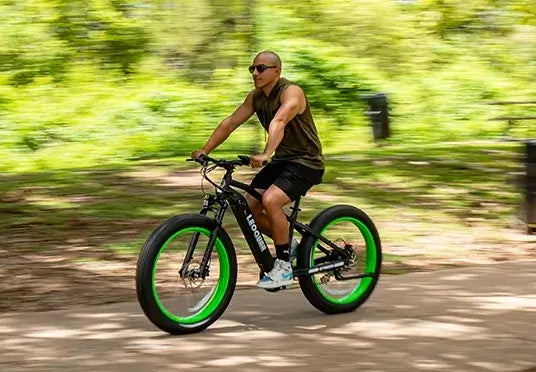
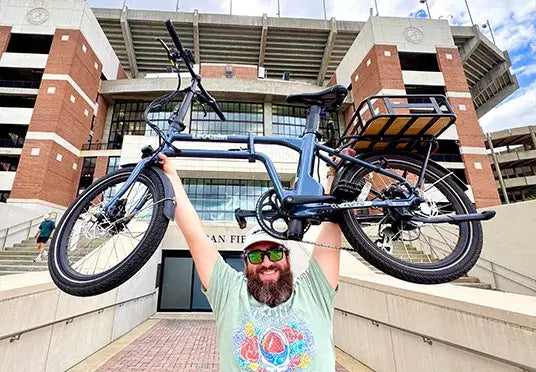

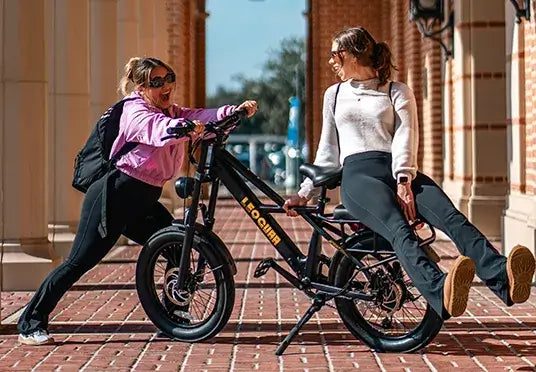
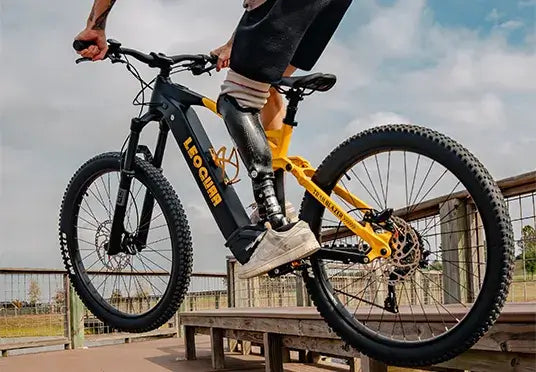
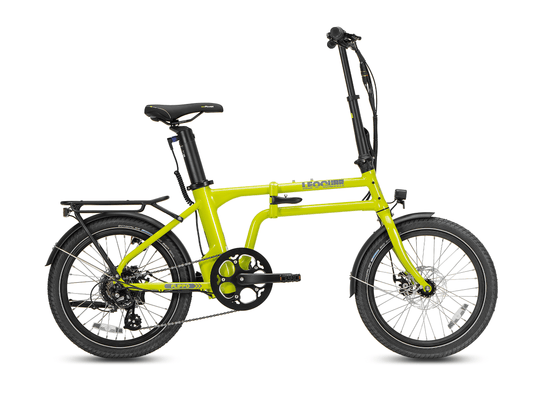
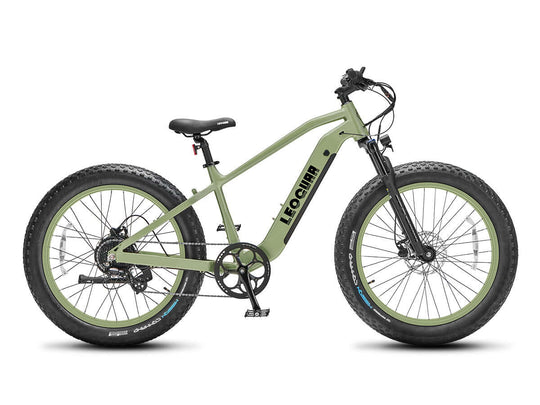
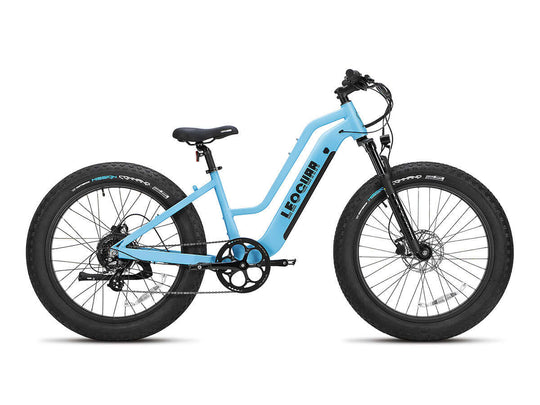
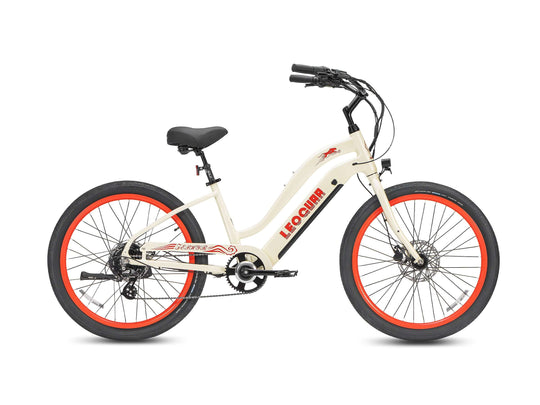
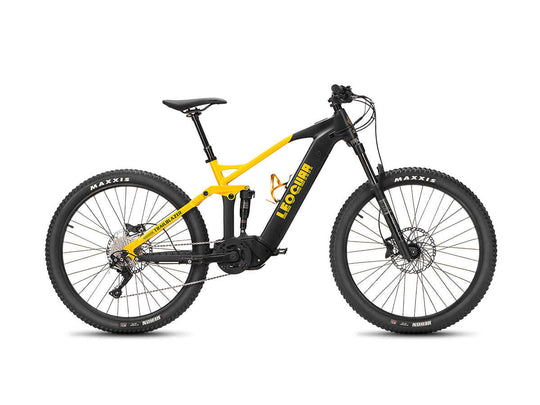
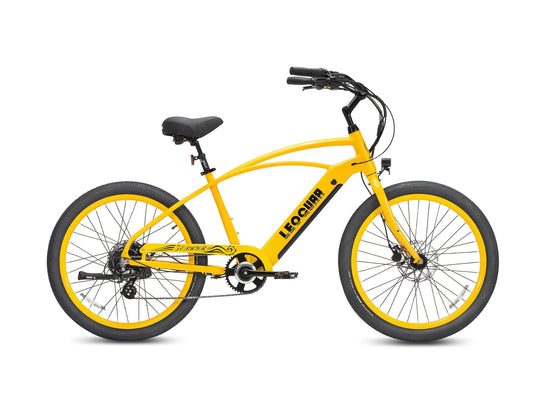
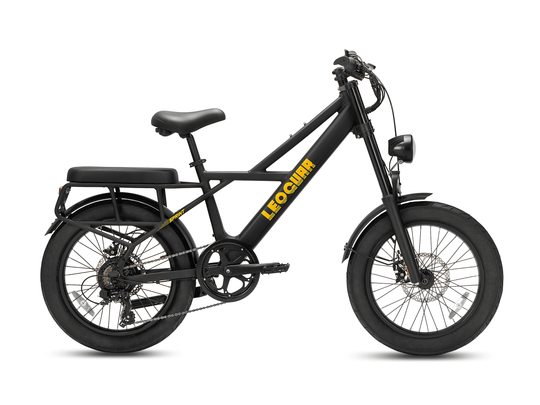
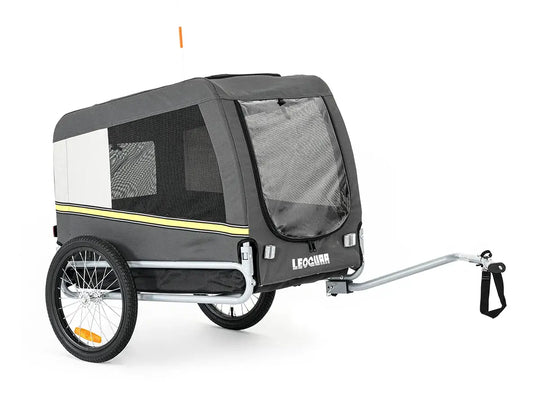
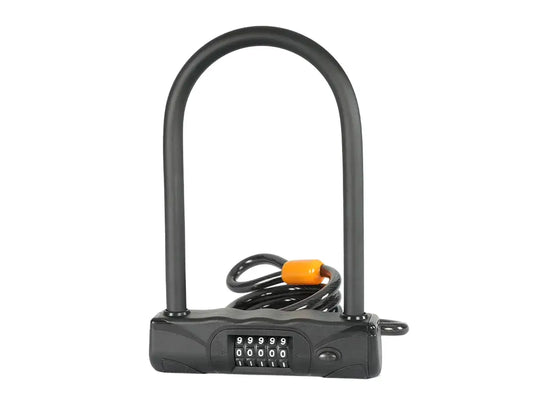
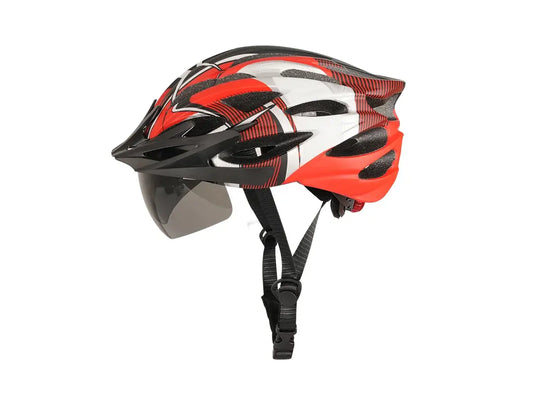
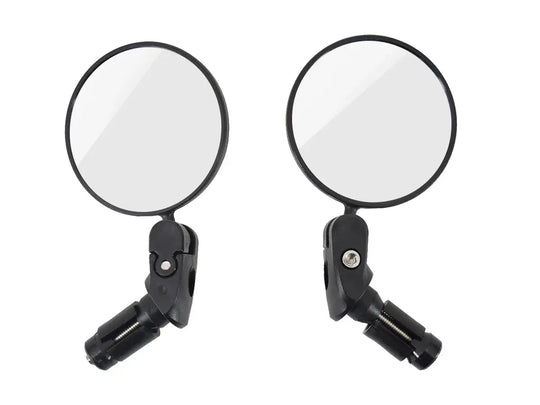
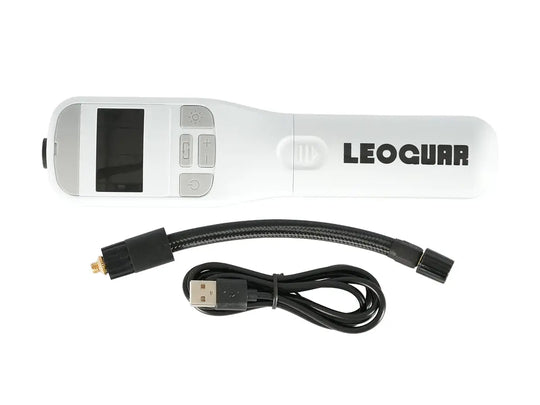
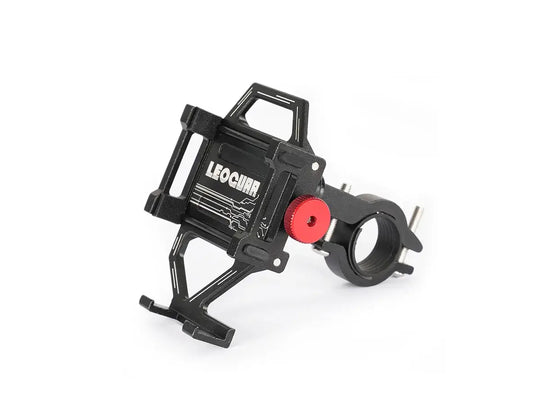
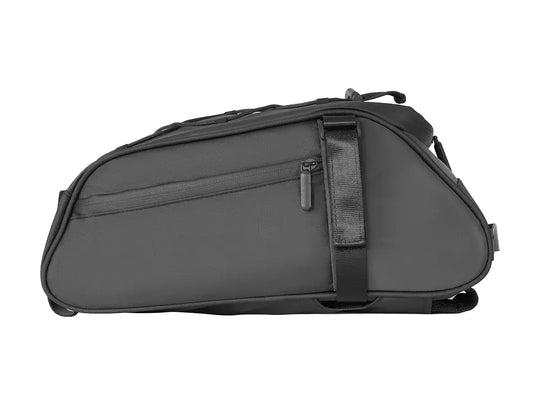
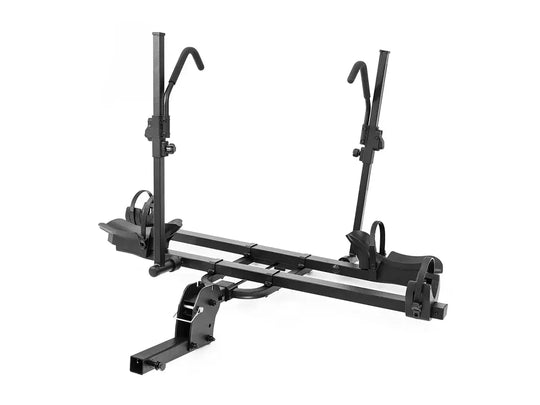
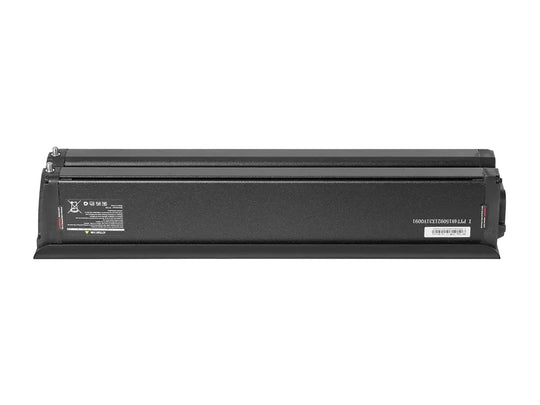
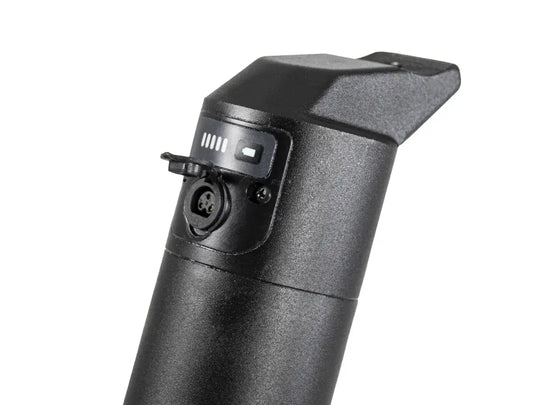
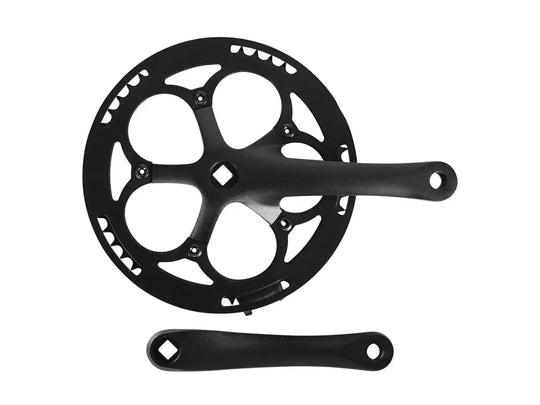
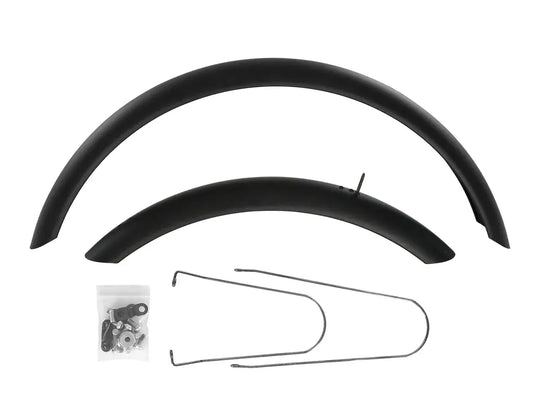
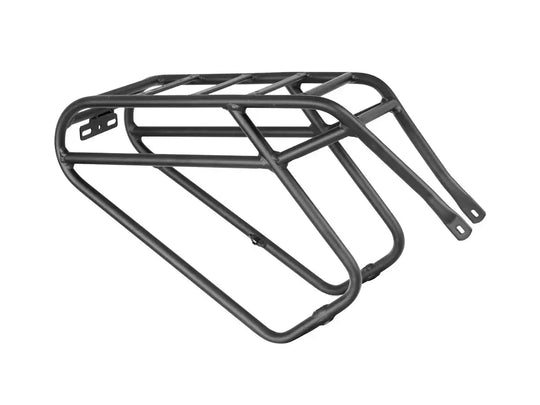
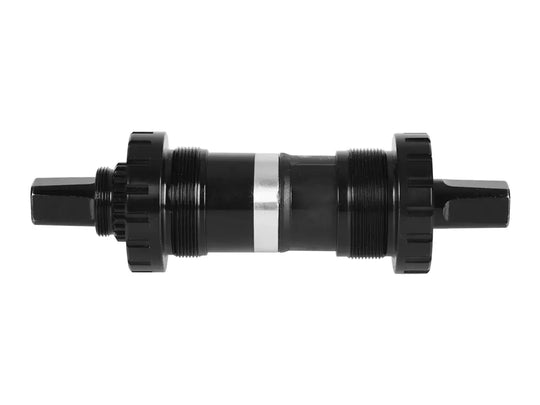

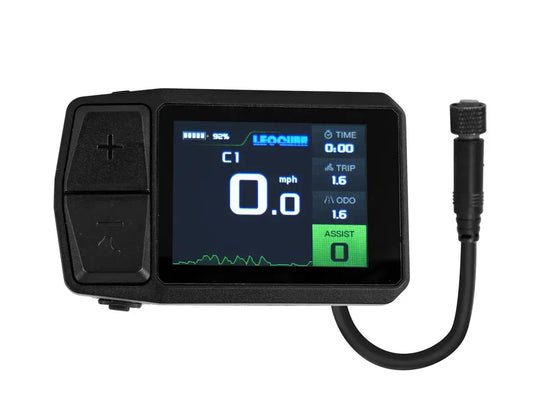
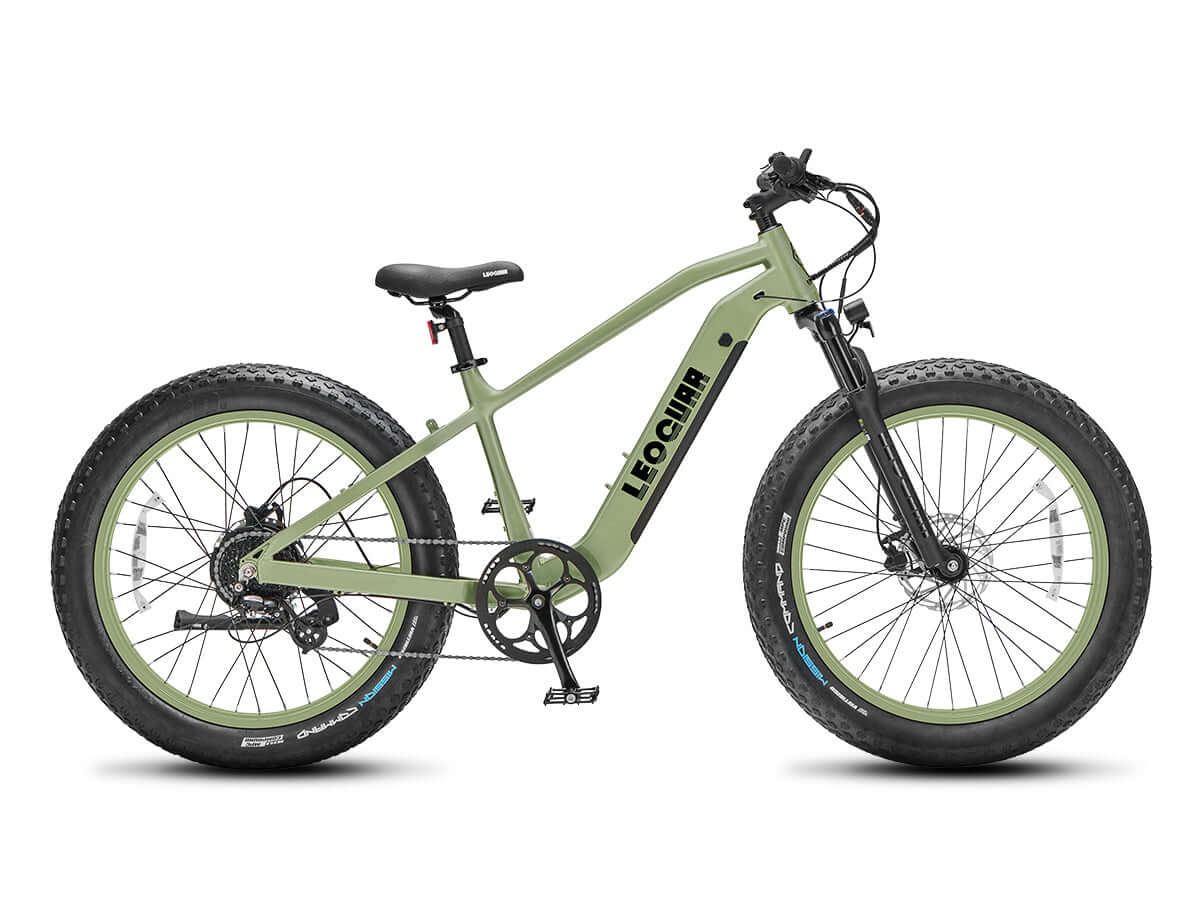







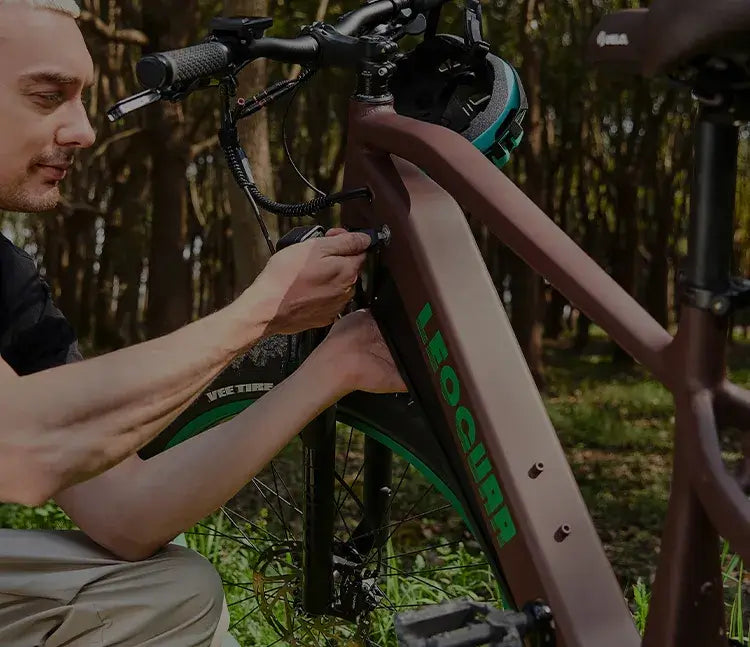
Leave a comment